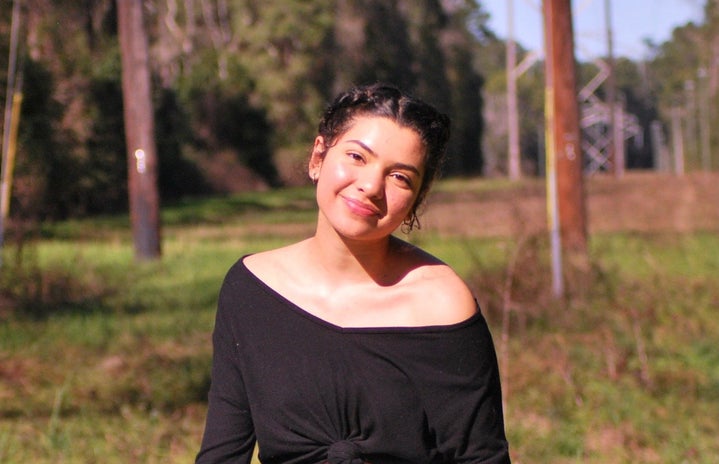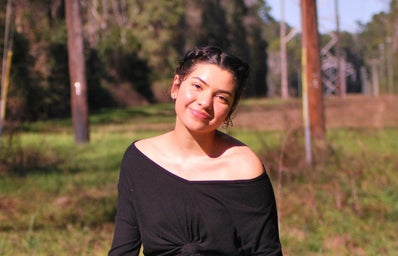There’s something to be said about 2020 that no one can deny: It’s been f—*air horn sound*—g crazy. A global pandemic, the accident that took the lives of the Bryant’s and others, a climate crisis, a series of protests aimed at dismantling systemic racism, the arrest of alleged pedophile Ghislaine Maxwell and the conviction of rapist Harvey Weinstein all happened in 2020. With a list that keeps growing, it’s easy to focus on recent news and disconnect from issues that have permeated American society for decades. To fight this tendency of focusing on only what our timeline says is relevant, I reached out to Carolina Garcia, a student advocate for various intersectional gun violence issues.
Her Campus (HC): Can you give me some background into who you are and what organizations you’re involved in?
Carolina Garcia (CG): I’m a student at Florida State University studying Environmental Science and Policy. I serve as lobby lead for Team Enough’s Florida Collective, the youth branch of the Brady Campaign. The goal of this program is to engage students in gun violence prevention through lobbying and community organizing. I am also a political director for the March For Our Lives chapter at FSU. These organizations work together closely to give Florida students opportunities to advocate for various intersectional gun violence issues.
HC: What is the mission of MFOL?
CG: The superficial goal is to end gun violence. [But] deeper within that, MFOL aims to tackle root causes of gun violence rather than just the surface, stand-alone issues. Such issues like racism, homophobia, xenophobia, white supremacy and etc. are ingrained in American infrastructure and are substantial contributors to gun violence.
HC: How does MFOL attempt to dissolve gun violence?
CG: To completely end gun violence, we must advocate not only for gun-related legislation like assault rifle bans but for immigrant rights, exploitation in the workforce and how institutions of power shape these things. As an advocacy group, we create awareness for the intersections and root causes of gun violence.
HC: On that note, how is gun violence relevant to other issues we are facing right now, such as the pandemic and systemic racism?
CG: Let’s look at Tallahassee; College Town is the poorest zip code in Florida. [But] we have affluent college students going out and spreading COVID in their community. This plays into the dangerous cycle of underfunded communities not having enough resources to protect themselves from consequences generated by the privileged groups. Likewise, it is predominantly white people who are perpetrators of gun violence and BIPOC who are disproportionately affected. If there’s something that disproportionately affects the same groups as gun violence, you have to ask why. The answer, as I said earlier, can be explained in terms of the root causes that propel systems of oppression. As for the Black Lives Matter movement, I would argue that fighting white supremacy and systemic racism is also fighting against gun violence. Not only is gun violence intertwined with police brutality, but it is also a symptom of white supremacy.
What followed after this question was a lengthy discussion on Audrey Lorde’s book The Master’s Tools Will Never Dismantle the Master’s House. Carolina enlightened me on Lorde’s theory on the systems of oppression: “Lorde mentions three things that propel all systems of oppression, white supremacy, capitalism and patriarchy.” Carolina argued that “fundamental to understanding the connectedness of gun violence, is acknowledging these systems.” For example, “white supremacy breeds police brutality, capitalism prompts the NRA to lobby against gun reform and patriarchy produces domestic violence.” These consequences, Carolina explains, are all related to gun violence.
As activists, Carolina notes, “We should be intersectional in our approach to gun violence.”
Want to see more HCFSU? Be sure to like us on Facebook and follow us on Instagram, Twitter, TikTok and Pinterest!




